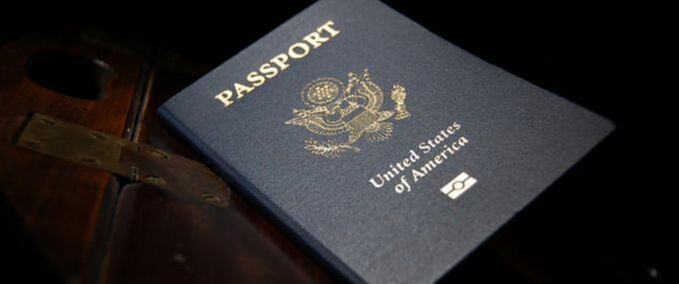Click "Read More" to continue reading.
As a non-citizen, even a Lawful Permanent Resident, you are still subject to immigration laws (and violation of these laws can still result in your deportation). You are likely a law-abiding Green Card holder and have no intention of ever breaking a law. Nevertheless, there are a number of issues which can cause problems for you and should be kept in mind.
Extensive time abroad.
One problem that often presents problems is significant time spent outside of the United States. You could receive a job offer that requires a lot of international travel, or you or your spouse could be offered a job that requires you to relocate overseas for an extended period of time. In those circumstances, your travel can disrupt your permanent residence, and you could lose your status and Green Card. You can be proactive and prevent this from happening, but it will require the filing of more forms, take a long time and cost you quite a bit of money.
Criminal Charges
As a law-abiding Green Card holder, you have no intention of ever breaking a law. The unfortunate reality, however, is that "things happen." Innocent people are charged with crimes, and I have represented clients who found themselves in this situation. One common problem stems from domestic disputes between spouses. Even if you are the victim, the police will sometimes charge both parties in the dispute with a crime, and this is devastating to the innocent partner. There are other instances when even a law-abiding person can get caught up in a chain of events that puts their legal status in jeopardy. This can be avoided by naturalizing, but there are specific requirements to do so, and the earlier you know about them, the better prepared you will be when the time comes to apply.
Basic Requirements Necessary to Apply for U.S. Citizenship
To be eligible to apply for U.S. Citizenship, you must generally meet the following requirements:
- you are at least 18 years of age at the time of filing (except active duty members of the U.S. Armed Forces);
- you are a permanent resident of the United States for a required period of time;
- you have lived within the state or USCIS district where you claim residence for at least 3 months prior to filing;
- you have demonstrated physical presence within the United States for a required period of time;
- you have demonstrated continuous residence for a required period of time;
- you demonstrate good moral character;
- you demonstrate an attachment to the principles and ideals of the U.S. Constitution;
- you demonstrate a basic knowledge of U.S. history and government (also known as “civics”) as well as an ability to read, write, speak and understand basic English; and,
- you take an Oath of Allegiance to the United States (although some applicants may be eligible for a modified oath).
This short article is not meant as a substitute for the volumes that have been written on the complex subject of the laws, rules and regulations surrounding naturalization, nor is it meant to substitute for a lawyer’s evaluation of your eligibility to naturalize. With that said, it is a good idea to get a basic understanding of a few more issues that must be kept in mind if someone is on the fence about whether they should apply for naturalization.
What is the "physical presence" requirement and how is it different from “continuous residence” requirement?
As you read above, an applicant for naturalization must demonstrate they have been "continuously residing" in the United States, and "physically present" here for the requisite periods of time. Individuals that have never left the United States after obtaining their Green Cards will meet the "continuous residence" and the "physical presence" requirements for naturalization. This could also be true if they have taken short trips abroad. Sometimes, however, Green Card holders spend a significant amount of time abroad. This could be due to work, school, or family obligations. A single absence from the United States for 6 months or more disrupts their continuous residence! Depending on the circumstances, multiple trips outside the United States for a combined total of more than 6 months within a year can also disrupt continuous residence. Certain types of trips are excepted from this rule, but they must be carefully documented (and that documentation will need to be provided to the immigration officer of judge). Please let us know if you need to travel abroad for a significant period of time so that we can discuss the nature of the trip with you and determine if it will present a problem with respect to your "continuous residence."
In addition to the "continuous residence" requirement, the applicant must also show that they were physically present in the United States for at least half of the statutory period for which their continuous residence is required (usually three or five years depending on the basis for the application). Just having the Green Card for the statutory period is not evidence of actual physical presence. To demonstrate physical presence, you may need to provide documentation in the form of credit card charges, utility bills, income tax filings that show you have worked in the U.S., school records, etc. If you want to apply for naturalization and have significant travel outside the U.S., we will work with you to determine whether your documentation is sufficient to demonstrate your actual physical presence requirement.
Finally, please note that a Green Card holder who leaves the United States for one year or more needs a re-entry permit to return. Failure to obtain it before you travel abroad could result in the termination of your Lawful Permanent Resident status and your being denied re-entry upon your return.
What is “good moral character?”
It is easy to understand good moral character (GMC) in the context of criminal activities, but the concept goes far beyond that. Individuals who have committed certain crimes are presumed to have bad moral character. Most violent felonies and certain other crimes are automatically disqualifying factors for naturalization. In addition to criminal activity, there are other matters that can result in a denial of someone’s application for naturalization on the basis of bad moral character. Some common examples include failure to file or pay taxes (without an IRS-approved repayment plan) and failure to pay child-support obligations. Another common issue that can lead to a finding of bad moral character is failing to register with the Selective Service (military draft). This is somewhat unique to the United States because many countries have compulsory military service, and immigrants may not realize that they are required to register with the Selective Service when they move to the United States. In each of these instances, an applicant is required to provide documentation to overcome a finding of bad moral character.
Voting
In a prior blog entry we addressed the danger of "false claims to U.S. Citizenship" and non-citizens voting in any US election. To reiterate, a non-citizen should NOT vote in any US election - it will not only disqualify them from becoming US citizens, it can lead to deportation. If you have not already read that prior blog, I highly recommend that you read it by clicking HERE.
Summary
As you have read above, there are a number of issues that can unexpectedly create problems for Lawful Permanent Residents, or prohibit them from applying for naturalization later on. As a general rule, I would advise anyone eligible to apply for naturalization to do so when they are eligible. Exceptions to this rule are individuals who have carefully explored the issues involved and chose not to naturalize (ex. for tax reasons or due to the rules precluding dual citizenship in other countries).
If you have any questions about Lawful Permanent Residence, U.S. citizenship or other immigration issues, please do not hesitate to call our office.



 RSS Feed
RSS Feed